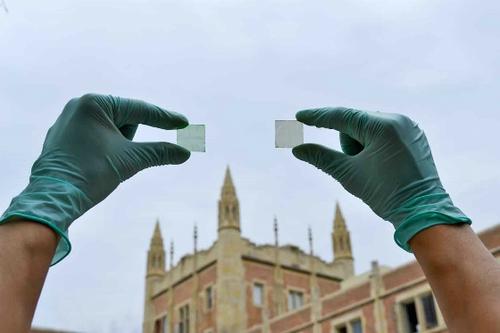Here are a few things that caught my eye this week.
How clever is that??In the evolution of a design, there comes a point where functionality, cost, performance, and other aspects are pretty much wrung out.  At that point, IMHO, a laser focus on the user experience should take over, but this rarely happens.
At that point, IMHO, a laser focus on the user experience should take over, but this rarely happens.
Why? Because technology is created for technology's sake. That's of course a good thing, but UI is rarely a key concern in the electronics world, with a few nice exceptions (Apple comes to mind).
Along comes Mugi Yamamoto, a design student who stared long enough at a traditional printer to envision a different way of designing one. Yamamoto's design, the Stack, eats its way down a stack of paper.
Memory month
August is all about semiconductor memory, with MemCon last week and the Flash Memory Summit this week.
We came across some great stories while roaming MemCon. I was particularly struck by Micron's Mike Black, describing hybrid memory cube technology. Turns out, however, there's a lot more to the story. EE Times' Rick Merritt, doing his own bit of roaming at the Flash Memory Summit, discovered how the hybrid memory cube almost had a new-death experience but quick engineering thinking brought it back from the brink!
Engineers, by and large, have an affinity for beer. Readers of engineering publications, by and large, have an affinity for beer.
EE Times put two and two together and came up with this slide show.
Next-generation challenges
Time was, when a savvy engineer was concerned about whether he or she might be replaced by young "whippersnappers." Today, the young whippersnappers seem to have no interest in the business, if this report is any indication.

Solar cell breakthrough?
As part of the Drive for Innovation project I was involved in, we stopped at UCLA to interview, among others, Professor Yang Yang, on the topic of solar cell design and conversion efficiency. This week, Design News reports that Yang's team has come up with solar film with nearly double the efficiency (a 7.3 percent conversion rate) of its earlier efforts. The film could be placed not only on the screens of mobile devices, but also on windows, sunroofs, and other large-scale surfaces, Yang told Design News.
Understanding big.LITTLE
ARM held another Google Hangout recently, this one with a panel of experts describing the company's big.LITTLE architecture. The panelists, including Brian Jeff, the technology's product manager, and software power architect Charles Garcia-Tobin, describe how two microprocessor clusters are combined to look like one. One portion of the combination is optimized for high performance, the other for high efficiency. One of the advantages is the ability to use both clusters at the same time.
How to improve SystemVerilog
Brad Pierce is out with 10 enhancement requests for the design language.
Tweets of the Week
3D printed items in the Ames NASA Space shop #AmesS2D#NASA#Engineeringpic.twitter.com/fGBOcWGOyG
— Speed2Design (@Speed2Design) August 15, 2013
3:30am ..... Dammn it electronics y u hav so long chapters !!! #engineering#madness
— 43MillionStrong !!! (@belieber28april) August 15, 2013
